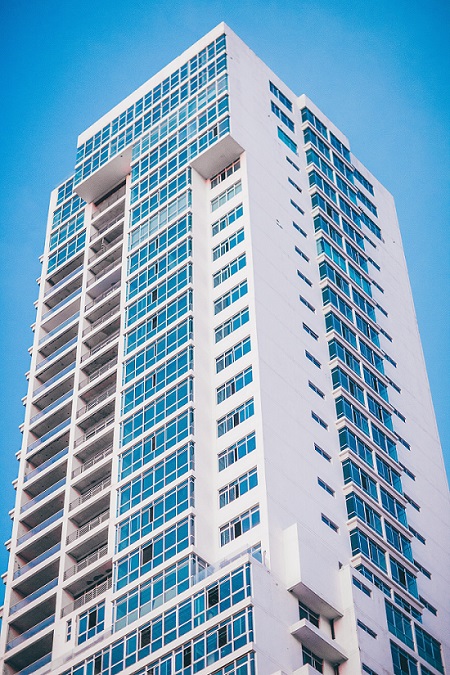
When it comes to apartment buildings, they are often more complicated to analyze than a house. The house generally has one family inside or an extended family and the whole house is viewed as one unit, having one orientation. Then, each room can be micro-managed as a smaller version of the house whole house. As an example, if we discover that the northeast section of someone’s house happens to be very positive in their particular house, then the northeast section of each room in that house would have a small dose of that good quality. Simple and straight forward.
But what about an apartment building with any number of occupants? Does the qi (energy) have an intelligence to understand that these tenants are not related to each other? Should the apartment building be viewed as one giant house, where everybody inside is just occupying a room that happens to be their individual apartment? Or should each apartment be viewed as its own universe, with its own distinct orientation? These are the kinds of questions that feng shui practitioners have different opinions about. The distinctions in the analysis can include whether or not the apartment building has one big main lobby or entrance that everyone uses or in the case of certain condos and townhouses, where each person has their own separate entrance from outside. And would a common parking garage matter?
I have always taken the approach, where I make a mental note of where someone is within a building (the big picture) and then I help the client micro-manage their own apartment, with its own unique orientation, especially since this is all the client has control over. Feedback from clients confirms that often similar types of people will occupy the same building. Creative types might be an example. Perhaps you are a chef and the person who lives above you is a kitchen designer!
It is valid to note where someone’s individual apartment is within a building. If I can use the metaphor that the building is like a state or country and the individual apartments are like cities or towns. You will have the greatest potential to succeed and be healthy and happy if you are in the cleanest and most prosperous city, as opposed to the most polluted or poverty-stricken town. Over and over again, I have clients confirm for me that the people who occupy the best part of a building are doing better than those in the worst parts of the building. If I discover that my client is in a bad part of the building with no practical or affordable way to move, I try to see if they can make better use of the best parts of their individual space.
Author: Kartar Diamond
Company: Feng Shui Solutions ®
From the Feng Shui Theory Blog Series

